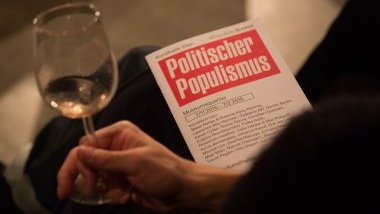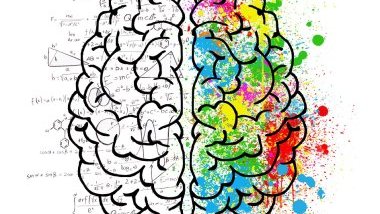There is no doubt that language and communication play an essential role in the po-litical environment. Political content, values and visions must be verbalised in order to reach voters. Therefore, language is a major instrument with which debates can be conducted. But how important is language in our societies? And what role can and must language play in the European Union and the upcoming election campaigns?
We are losing sight of language
If one observes social and political debates these days, one notices that in an alarming way, language is becoming less important. In a nutshell: politics as well as media and the public opinion use language as a means to an end, without even thinking about the effects that language can have on people. In August 2018, Christian Lindner (leader of the liberal Free Democratic Party in Germany) criticised the brutalisation of language and the loss of its differentiation. From his point of view, discussions are no longer carried out on an objective level. Consequently, political debates are devalued. Federal President Frank-Walter Steinmeier stressed: “We must come back to a debate that avoids irrationality as much as possible”. Currently, the main focus seems to be on which party or which person can shape a topic with the most conspicuous or critical wording, but not which reality-based facts are decisive. The linguists Elisabeth Wehling and George Lakoff conducted research and concluded their findings: the so-called framing theory states that frames and metaphors shape debates significantly. The aim is to place political content and values in the brains of the audience in order to influence the voters’ political reality.
Whoever framed the debate first, wins
According to the framing theory, human beings cannot act outside of frames and metaphors. Surely, people do not think – or act (!) – in equal frames of interpreta-tion, but generally, one can say that people cannot not think. As a result, political debates need a different structure: Evidence-based and comprehensible information and facts are required to drive debates, but not the strategic approach of influencing people via tactical use of language.
According to cognitive research, it is fatal to adopt the values and views of the political counterpart in one’s own language. Denying certain frames does not devalue them, but causes them to be repeated in the listener’s brain. It turns out to be disadvantageous to assimilate arguments of the opposite side and to deny them because people initially react to the negated idea. Secondly, people start to understand the outlined argument with regard to its linguistic formulation and the denial. For this reason, Lakoff and Wehling argue, the possibility of spreading one’s thoughts is lost if denial occurs. Therefore, political content can only be communicated when the message is linked to an idea as well as the appropriate frame. Political language requires a conscious use and concrete awareness on both sides of communication: both, politicians and voters, must be sensitive to how language and frames affect social interaction.
Unity in diversity: language as a link between European societies
The European Union is characterised by diversity: in its political structures and cultures as well as language. The EU is home to 24 different official languages and faces the challenge of meeting all people in an understandable and direct way. Especially, in the light of the upcoming European election in May 2019, European politicians must ask themselves how they will build up their campaign and which communication is needed.
Of course, politicians are still elected in their individual member states, but nevertheless, pro-European parties must find a much more striking language that highlights the advantages of the European project. The most pressing issues have to be framed in such a way that a clear division to anti-European parties is recognisable and counter-ideas can be strategically placed.
Language is not only a means of communication and of transmitting information from the sender to the receiver, but also a sensitive instrument that can influence people’s thoughts and actions. Accordingly, facts must always be presented in a suitable way. Otherwise content of the information will get lost. If one takes the classic example of the so-called tax burden (Steuerlast), the picture of financial or even existential danger arises. Taxes restrict citizens in their freedom and self-determination by “taking money away” from them. However, the frame of tax burden completely neglects the fact that tax contributions make a certain social standard possible. An alternative frame would be tax responsibility, according to Wehling.
A more European example is the frame of tax haven or tax oasis. Countries that create incentives through their tax policies for companies or even individuals to transfer their financial resources elsewhere are described with this frame. Thus, in the context of framing theory, a place of lower taxation must be a paradise, where celestial conditions prevail, while one’s own country does not offer such conditions. This interpretation leads to the assumption that one has it clearly better where less taxes are required. But weren’t we just talking about the need of taxes to enable better living conditions and to secure social standards? It is clear that the call for a balanced and differentiated political discourse is essential for European democracy and that people must be much more sensitive to this knowledge. In particular, during election campaigns.




Follow the comments: |
|
